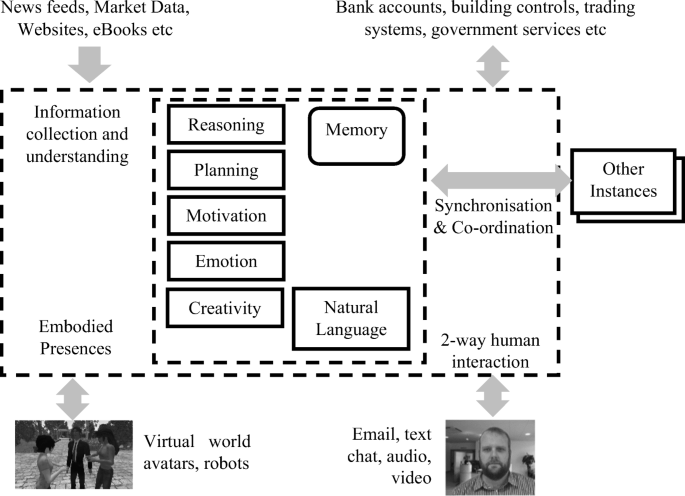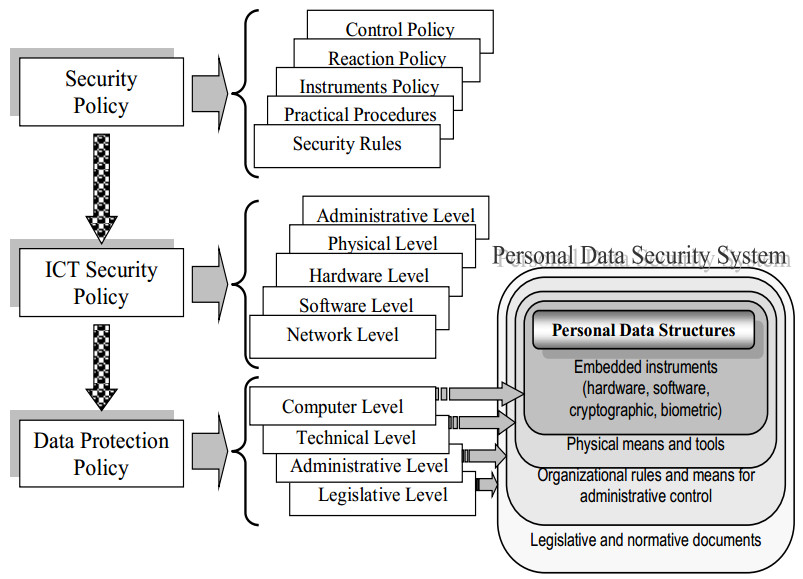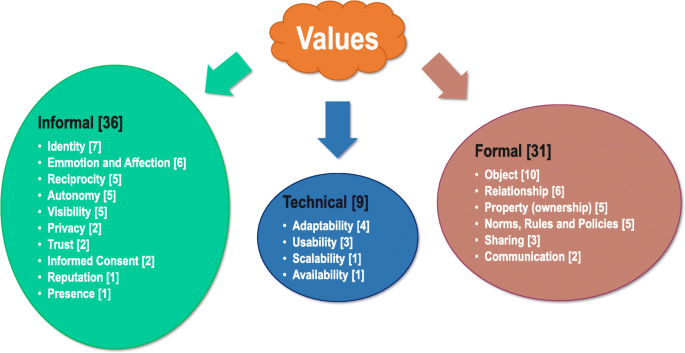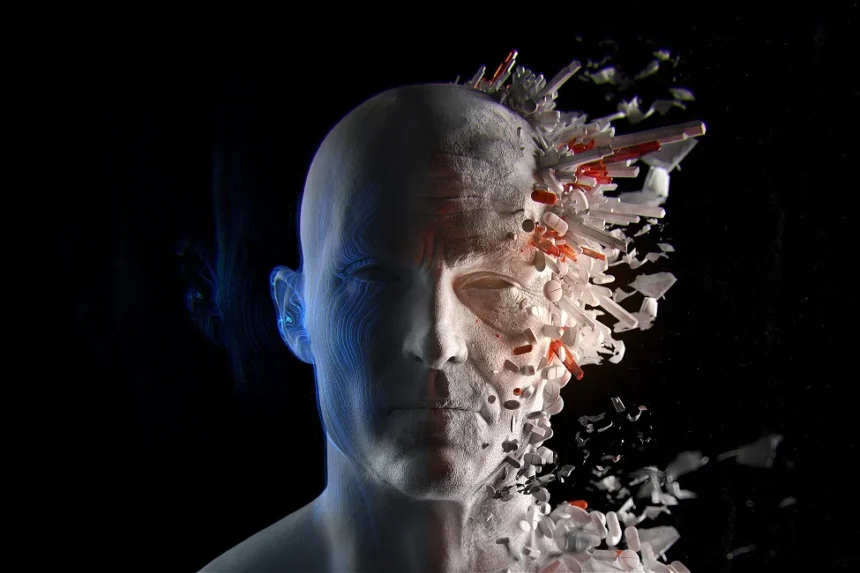In the age of rapid technological advancement, digital immortality has emerged as a captivating concept. It refers to the preservation of human consciousness, memories, or personality in digital form, enabling individuals to “exist” indefinitely in virtual spaces. While this idea offers profound possibilities, it also raises critical questions about privacy, consent, and the ethical implications of creating and sustaining digital identities posthumously.
The challenge of digital immortality is not just technological but ethical: how do we honor privacy and agency when the dead cannot speak for themselves?
Sherry Turkle, Sociologist and Author of Alone Together: Why We Expect More from Technology and Less from Each Other.
This blog explores the promise of digital immortality, its potential impact on society, and the privacy challenges that must be addressed to navigate this complex terrain.
Understanding Digital Immortality
Digital immortality is rooted in the idea of creating a virtual replica of a person using their digital footprint—social media activity, personal data, and even neural recordings. Artificial intelligence (AI) plays a pivotal role in analyzing and synthesizing this data to construct interactive digital personas capable of mimicking human behaviors, thoughts, and responses.

The technology is still in its infancy, but developments in neural networks, brain-computer interfaces, and data processing are accelerating progress. For instance, researchers have made strides in simulating human-like conversations, enabling digital avatars to provide companionship or preserve the essence of loved ones.
The Promises of Digital Immortality
1. Preserving Legacies
Digital immortality allows individuals to leave behind a detailed record of their thoughts, experiences, and values. This legacy can provide comfort to loved ones, helping them maintain a sense of connection after the individual has passed away.
2. Advancing Knowledge
Digital immortality offers the potential to preserve the expertise and insights of extraordinary minds. Imagine having access to the simulated wisdom of historical figures, scientists, or leaders to inform future generations.
3. Therapeutic Benefits
For those grieving the loss of loved ones, interacting with digital avatars can serve as a therapeutic tool. These virtual counterparts can help individuals process grief and maintain emotional ties.
Privacy Challenges in Digital Immortality
While digital immortality holds immense promise, it also raises significant concerns about privacy and data security. A 2019 study published in the IEEE Explore database (document 8934972) highlights the multifaceted nature of these challenges.

1. Ownership of Data
Who owns the digital replica of an individual? Is it the person themselves, their family, or the company that creates and hosts the digital avatar? Defining ownership is critical to establishing rights and responsibilities over these digital identities.
2. Consent After Death
Creating a digital persona requires vast amounts of personal data. However, consent becomes a gray area when the individual is no longer alive. Should surviving family members have the authority to authorize or deny the creation of a digital avatar?
3. Data Security Risks
Digital immortality relies on the storage and management of sensitive personal data. This makes digital personas susceptible to hacking, misuse, or exploitation. Unauthorized access to a digital avatar could lead to identity theft or the distortion of an individual’s legacy.
4. Ethical Manipulation
AI-driven digital immortality opens the door to potential misuse. Companies could manipulate digital avatars for profit, altering the persona to promote products or political agendas without consent from the deceased or their loved ones.
The Psychological and Ethical Implications
1. Emotional Dependence
While interacting with digital avatars can provide comfort, it may also delay the grieving process or foster unhealthy emotional dependence. People might struggle to accept the finality of death if they can always interact with a digital version of the deceased.
Digital immortality offers the possibility of preserving our essence, but we must guard against turning our identities into mere commodities.
Jaron Lanier, Computer Scientist and Author of Who Owns the Future?
2. Redefining Identity
Digital immortality challenges traditional notions of identity. Can a digital replica truly represent a person, or is it merely an approximation based on data? Philosophical questions about what constitutes “self” and “consciousness” remain unresolved.
3. Exploitation of the Deceased
Without clear regulations, digital immortality could lead to the commodification of digital personas. Companies may exploit these avatars for financial gain, potentially violating the dignity of the individual.
Balancing Innovation and Privacy
Regulatory Frameworks
Governments and organizations must establish robust regulations to govern digital immortality. These frameworks should address data ownership, consent, and ethical usage of digital personas.
Informed Consent Policies
Clear consent policies are essential, allowing individuals to decide during their lifetime whether they wish to have a digital avatar created after death. Families should also have a role in this process, ensuring that their wishes are respected.
Data Security Measures
Advanced encryption and cybersecurity protocols must be implemented to protect digital avatars from unauthorized access. Companies providing digital immortality services should be held to strict data protection standards.
Public Awareness and Education
Raising awareness about the implications of digital immortality is crucial. Individuals need to understand the potential benefits and risks, empowering them to make informed decisions about their digital legacies.
Emerging Innovations in Digital Immortality
Several companies and research initiatives are pushing the boundaries of what digital immortality can achieve:

- Eternime: A platform that collects user data to create interactive digital avatars capable of communicating with future generations.
- Replika: An AI chatbot that learns from users’ conversations to create a personalized digital companion.
- Neural Interfaces: Research into brain-computer interfaces is paving the way for more accurate replication of thoughts and emotions in digital form.
While these innovations are exciting, they also underscore the importance of addressing privacy and ethical concerns before widespread adoption.
A Path Forward for Digital Immortality
As digital immortality becomes more feasible, society must grapple with profound questions:
- How do we ensure privacy and consent in the creation and use of digital personas?
- Can digital immortality coexist with the human need for closure and acceptance of mortality?
- What measures are necessary to prevent the exploitation of digital avatars?
By fostering open dialogue and developing ethical guidelines, we can navigate the challenges of digital immortality while maximizing its potential to enrich lives and preserve legacies.
Breaking Down the Barrier
Digital immortality represents a bold leap into the future, offering the promise of preserving human identity and connection across generations. However, its realization must be tempered with caution, ensuring that privacy, consent, and ethical considerations remain at the forefront of its development.
As we stand at the intersection of innovation and ethics, the debate over digital immortality and privacy reminds us of the delicate balance required to shape a future that respects both technological progress and human dignity.
Recent Insights into The Debate Over Digital Immortality and Privacy
“The Ethical Dilemma of Consent in Digital Immortality”
A 2023 ethical review highlighted the complexities of consent in creating digital personas after death. Researchers emphasized that while living individuals can provide consent, posthumous data usage raises questions about family permissions and the moral implications of recreating a digital identity without explicit approval.
Read the full analysis here.
“Privacy Concerns in AI-Generated Digital Avatars”
A 2023 study explored privacy risks associated with AI-driven digital immortality. It found that collecting and synthesizing personal data for creating digital replicas increases vulnerability to data breaches, unauthorized access, and identity manipulation. Strong encryption protocols were recommended to safeguard digital identities.
Learn more here.
“The Commodification of Digital Personas”
In a 2023 technological report, researchers examined how companies could exploit digital avatars for profit. The study raised concerns about the commercialization of personal data and called for regulatory frameworks to ensure that digital immortality services respect individual dignity and privacy.
Discover the recommendations here.
“Psychological Impacts of Interacting with Digital Avatars”
A 2022 psychological study analyzed how interacting with digital versions of deceased loved ones affects mental health. Findings revealed that while such interactions can provide comfort, they may also hinder emotional closure, creating dependency or confusion about the boundaries of life and death.
Explore the findings here.
“Cultural Perceptions of Digital Immortality Across Regions”
A 2023 sociological analysis highlighted varying attitudes toward digital immortality. The study found that cultures with strong spiritual beliefs often view digital replicas as unsettling, while others see them as tools for preserving legacies. These differences underscore the need for culturally sensitive approaches to implementation.
Read the full report here.
“Digital Immortality and Generational Data Inheritance”
A 2023 study investigated the ethical and legal issues of generational access to digital immortality data. It proposed policies to manage inheritance rights for digital personas, ensuring that future generations can access or modify these avatars without violating privacy or ethical boundaries.
Discover the insights here.
“Economic Models for Affordable Digital Immortality”
A 2023 economic study analyzed the cost of digital immortality technologies and the potential for creating affordable access. Researchers warned of the risk of digital immortality becoming a luxury, proposing subsidies or open-source models to democratize access.
Read more here.
“AI and the Evolution of Personal Identity in Digital Avatars”
A 2023 philosophical review questioned whether AI-generated digital avatars truly represent the person or if they become entirely new entities over time. The study emphasized that as AI evolves, these digital personas might diverge from their original identity, raising profound ethical and existential questions.
Explore the philosophical debate here.
“Legal Protections for Digital Avatars Posthumously”
In 2023, legal scholars proposed new frameworks to protect digital identities. The recommendations included recognizing digital avatars as extensions of individuals and granting them rights to prevent exploitation or misuse after their creator’s death.
Read the legal proposals here.
“Technological Advances in Emotionally Intelligent Digital Replicas”
A 2022 report detailed advances in AI’s ability to replicate emotional intelligence in digital avatars. While promising, the study highlighted concerns about the ethical use of such technology, particularly in manipulating users’ emotions for profit or influence.
Discover the findings here.
These recent insights reveal the multifaceted nature of digital immortality and privacy, emphasizing the need for ethical considerations, robust privacy protections, and equitable access to ensure this transformative technology is used responsibly.

























